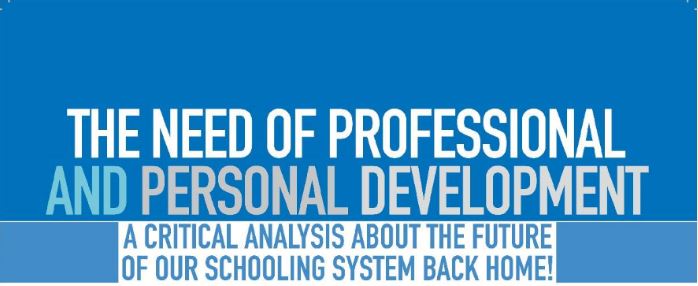Professional and Personal Development (PPD) Project

What is the difference between personal and professional development?
We’ve all heard of personal development plans, and even professional development plans, but how exactly do you differentiate between the two? And how do you know which one to focus your energies on?
There is a difference between personal development and professional development, and it’s easy to get caught in the crossfire of the two when looking to further yours (or others) skills. But there is huge crossover between them as well….. So, what are the main differences?
Professional Development
Professional development involves developing someone in their role to entirely understand the job they do and how they can improve. It involves enhancing the necessary skills to carry out their role as effectively as possible and is something that will continue throughout their working life.
With changes to our working lives happening every day, be it economical change, amendments in legislation or even the advance of technology, it is important to develop your skillset to remain effective in your career.
Effective professional development involves ensuring your knowledge and understanding of your area of expertise for your career is always at the highest possible level. It is the acquisition of skills and knowledge for career advancement, but it also includes an element of personal development.
Personal Development
When you think of personal development, think about what skills someone needs to accomplish the results required, both in their school / college life and for life in general. It is about improving their talents and potential, and mould them to be successful in life.
By having a thorough understanding of what they need to achieve and how to achieve it, each student can develop the necessary skills by way of a solution.
Establish exactly what skills you need to succeed in your life. It can be academic goals, sporting adventures or political aspirations….This may be influencing skills, you may need to manage teams, or inspire individuals. It may be that you need to be able to manage upwards or have excellent delegation skills. When you are able to identify these needs, you are able to work towards a personal development plan.
Why Is Professional Development So Important?
School systems today (back home) are charged with addressing ever-increasing demands: reducing the achievement gap, adopting evidence-based practices, meeting adequate yearly progress goals, managing the requirements of another language and ever changing difficult student environment.
Educators must keep abreast of the important advances that are occurring in education. This is where professional development comes in. Professional development is defined as “the process of improving staff skills and competencies needed to produce outstanding educational results for students”
”Professional development is key to meeting today’s educational demands. High-quality professional development strategies are essential to schools. The days of teacher staff development sessions consisting of “sit-and-get” workshops and expert-delivered awareness campaigns are long gone.
We are now moving towards more effective and more engaging professional development models. Research and experience help us recognize that high-quality ongoing professional development that deepens teachers’ content knowledge and pedagogical skills; provides opportunities for practice, research, and reflection; and includes efforts that are job embedded, sustained, and collaborative will assist in the goal to remain up-to-date.
What is effective professional development?
Effective professional development enables educators to develop the knowledge and skills they need to address students’ learning challenges. To be effective, professional development requires thoughtful planning followed by careful implementation with feedback to ensure it responds to educators’ learning needs. Educators who participate in professional development then must put their new knowledge and skills to work.
“Professional development is not effective unless it causes teachers to improve their instruction or causes administrators to become better school leaders”.
Additionally, professional development is increasingly seen as a systemic process that includes the development of all individuals involved with student achievement from the superintendent to the teaching assistants.
THE BASICS of what constitutes professional development?
When people use the term “professional development,” they usually mean a formal process such as a conference, seminar, or workshop; collaborative learning among members of a work team; or a course at a college or university. However, professional development can also occur in informal contexts such as discussions among work colleagues, independent reading and research, observations of a colleague’s work, or other learning from a peer (such as shadowing at a leading School) .
So do we need a Professional and Personal Development Plan for our beloved College back home?
The answer is YES…. From measuring the ground situation and also getting feedback from the Principal and various stakeholders of JHC, it is identified that the current system is not producing /bringing up the best out of the JHC Students / teachers and others attached to JHC.
The Personal Effectiveness & Capabilities have to be developed to help define the knowledge, skills and behaviours required of the students & teachers attending JHC in order to be effective in their role and meet the individual needs / objectives and also fulfilling the JHC’s expectations / potential.
We the JHC OBA UK, are very keen to launch a Personal Development Plan that should be designed and prioritised to support the immediate development needs at JHC as well as the longer term ambitions and objectives of wider stakeholders.
This plan should enable individuals and targeted groups at the college to take charge of their own learning and development taking into account that knowledge, culture and wisdom becomes a proactive as well as reactive process.
It should allow learners to identify key areas of learning and development activity that will empower them to either acquire new or develop existing skills and behavioural attributes for the following purposes:
- Enhance performance in their current role
- Address anticipated changes in their current role OR lead, implement and imbed the proposed changes for the betterment
- Address career aspirations towards a future role

